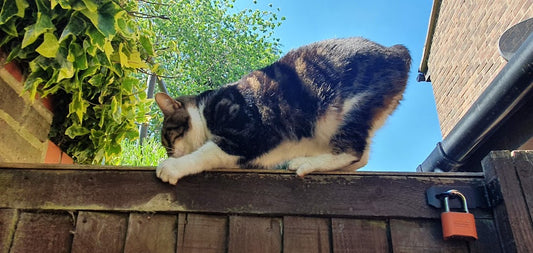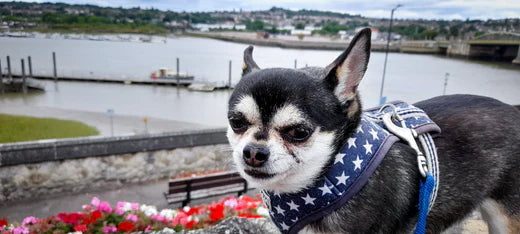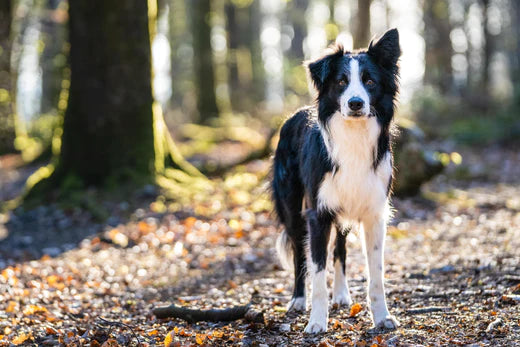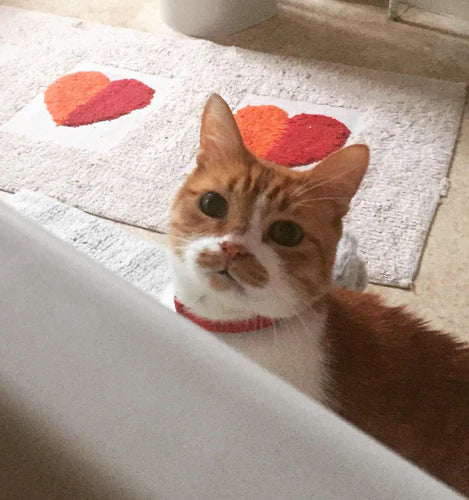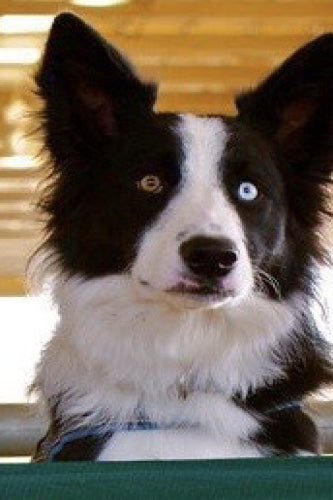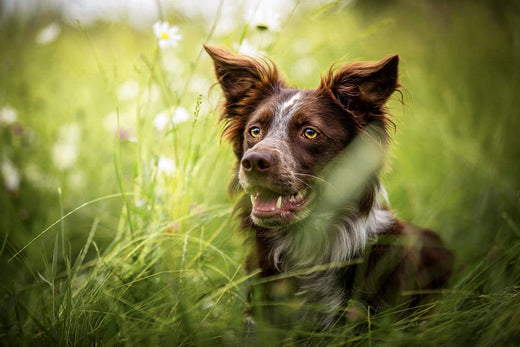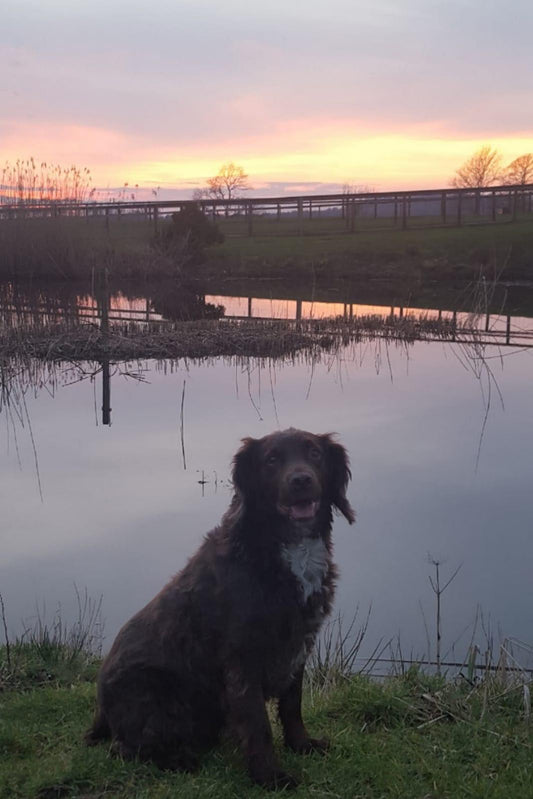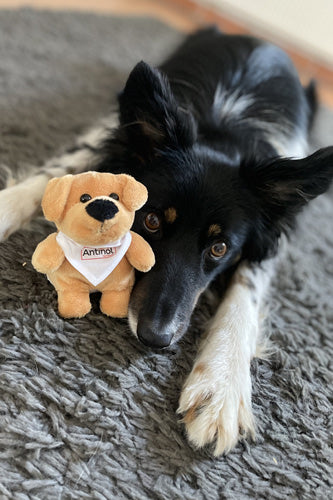Playtime. It's the ultimate bond-booster between you and your dog. Good for them, but also very good for us. It’s the perfect way to deepen the trust, love and respect in your relationship.
It probably goes without saying but dogs not only thrive on the attention and exhilaration of playtime, they also learn every time they play. Ask any canine behaviourist and they will all say the same - play is fundamental to teaching young pups (and even older pups) the practical skills they need in life. From releasing energy to learning new skills, conflict resolution, refining motor skills, practising self-control, and building confidence, there are a wide range of benefits for both dogs and their owners wrapped up in the playtime parcel.
The Balancing Act
A quick Google search about pup play time (or conversation with your fellow pup-parent) will reveal a hidden truth, which is that more often than not, playtime (the what and the how long) is determined by the owner, not the dog. Whilst practical (you know how much time you have and what your preferred game is) it’s not always what’s best for your dog.
Happy, productive playtime is very much a two way street. In the quest for a happy dog and to avoid frustration, there are several things we can all do to make playtime a bit more balanced and ultimately more fun…. even when it’s time to stop. As the owner of one dog who readily initiates a tug-of-war to signal they want to go home during a walk and another who strategically moves the ball so I can no longer throw it for them, I now realise that I need to give my dogs’ cues more credence and not ignore them.
Identifying Their Unique Play Style
While it's true that we naturally enjoy playing games with our canine companions, it's also important to recognise each dog comes with their own unique play style, deeply intertwined with their personality. At the core of these interactions lies pure enjoyment— whether they win or lose, the more engaging the playtime, the greater our canine friends look forward to playing with us the next time - so getting it right matters.
Many pet owners are familiar with their dogs' preferred play styles. Some have a total obsession with fetching balls, while others excel in tug-of-war battles. There are those who relish solitary playtime, stick enthusiasts, and even dogs who only show interest in a toy when someone else has it, driven by a fear of missing out (FOMO). While a dog may have a favourite way of playing, they may also enjoy a variety of activities. However, it's crucial to observe and understand what doesn't resonate with them and avoid incorporating those elements into playtime. This ensures that positive reinforcement remains at the forefront of our interactions with our beloved pooches.
It's all in the Interaction

Interaction is key, and while continuously throwing a ball to an ‘obsessed ball fetcher’ may seem like play, it reaches a point where not only are you at risk of a torn rotator cuff, but the interaction becomes mechanical, missing the opportunity for that bond-boosting magic. Making subtle adjustments between throws to shift focus away from the ball, is all it takes to ensure that that magic is preserved.
Establishing eye contact and offering a gentle pat or rub on the head when they return the ball are simple yet effective ways to enhance the connection. Introducing variety by intermittently hiding the ball and searching for it together adds an element of excitement. Moreover, surprising your furry friend with a random ball containing hidden treats is guaranteed to be a hit!
Variety is the Spice of Life
Despite their inclination towards routine, dogs adore the thrill of receiving or playing with a new toy. Establishing a rotation system with a simple toy box, where only a few toys are available at a time, mimics our human behaviour of preferring fewer options for easier decision-making*. This approach encourages dogs to engage more actively with their toys, while still providing them with a sense of choice and excitement - choice keeps your dog interested.
*Psychologist Barry Schwartz demonstrated that the more choice we have, the less likely we are to make a decision - it’s called Choice Paralysis.
Let sleeping dogs lie

It’s important to recognise when your furry friend needs a break. Whilst they may always seem up for a game, it may not actually be what they want or need at that moment. Many dogs’ in-built desire to please their owner, may have them engaging when it’s really time for them to get some rest.
Respecting your pup means respecting their downtime. When they are happy in their beds it’s time to walk away and ensure others do too. However, this doesn't mean letting them dictate the household schedule! There are some cunning pooches out there that if you give them an inch, they will certainly take a mile..… my pup Poppy will “feign sleep” if it’s super early and I need to walk her earlier than normal, and she will even go as far as pretending to limp if it's raining - she’s a doxiepoo in wolf's clothing!
How to maximise the magic of playtime
Effective communication with our dogs is crucial for maximising the magic of playtime. One of the greatest pleasures of playing with our dogs is seeing their total commitment to the game and the joy they exude as they play it. We humans tend to get more satisfaction from seeing their happiness taking part, rather than from our part in the actual game. But despite seeing their gleeful bounds, it’s typically us who decides when the fun stops, not our pup. And it’s normally instant rather than a slow-down. This can be very confusing for them.
These abrupt endings can confuse our dogs, resulting in them being less likely to co-operate in the future, whilst simultaneously reinforcing bad behaviours. To maintain a balanced playtime experience and avoid negative endings, there are several strategies we can employ.
If you find yourself pressed for time and need to shorten outdoor play sessions, instead of abruptly ending the game by pocketing the ball or hiding the frisbee, try diverting your attention to something nearby. Dogs are naturally curious creatures with a fear of missing out (FOMO), so they'll likely come over to investigate what has captured your interest. As their focus shifts away from the game, it will naturally come to a close, allowing you to calmly put their lead back on. Similarly, if indoor games like tug of war or playing with a squeaky toy have reached their limit, subtly directing your attention elsewhere will shift their focus to the new activity, facilitating a smooth and natural end to playtime.
Patience is your superpower!

High-pitched voices amp up the excitement levels in our canine companions, which tends to lead to a bit of over-the-top energy. (I can say this being one of the biggest offenders as I get as excited as Poppy on some occasions - I’m that lady in the park!) However, this can be less than ideal for our pups. Canine behaviourists suggest speaking in a cool, calm tone and turning away from your playful pup can work wonders with them.
Tugging toys out of their mouths might make them a tad wary of you, thinking you might snatch it away again. So, why not distract them with a playful "What's that?" while you sneak away? And if they drop the toy, resist the urge to dive for it—let it be for now and fetch it later when they're not looking.
Oh, and if your pup keeps playing tag with you, don't chase them! Turn the tables and start a game of chase yourself. They'll be hot on your tail in no time!
In short, rich playtime isn't just some ordinary activity—it's a magic ingredient enhancing the human-dog connection! When we dive into the fun and honour our pups' quirks and limits, we're building a bond full of trust, understanding, and boundless laughter.
So, the next time you're having fun with your canine companion, make sure to look at play time through their eyes, and match their needs. Then you can soak up every second and relish the enchantment they add to both your worlds knowing you’re giving them exactly what they want, and need.
Emma, our Head of Customer Excellence is mum to Poppy a Doxiepoo!



